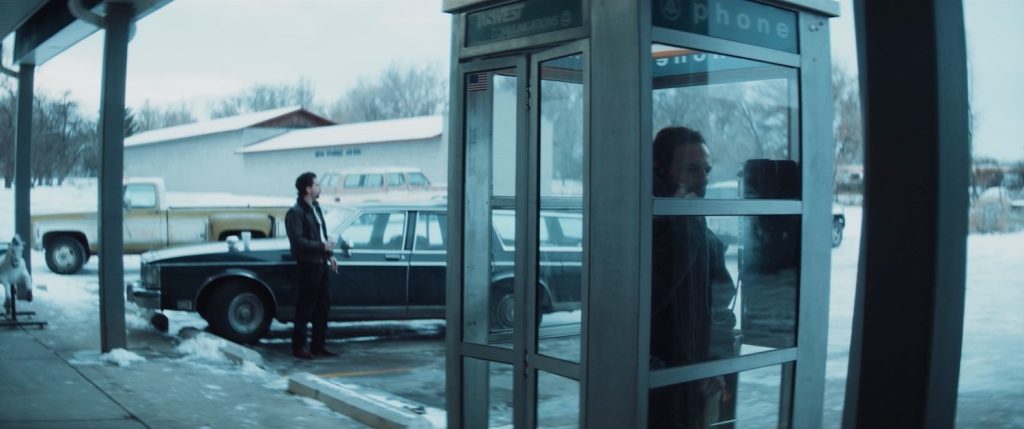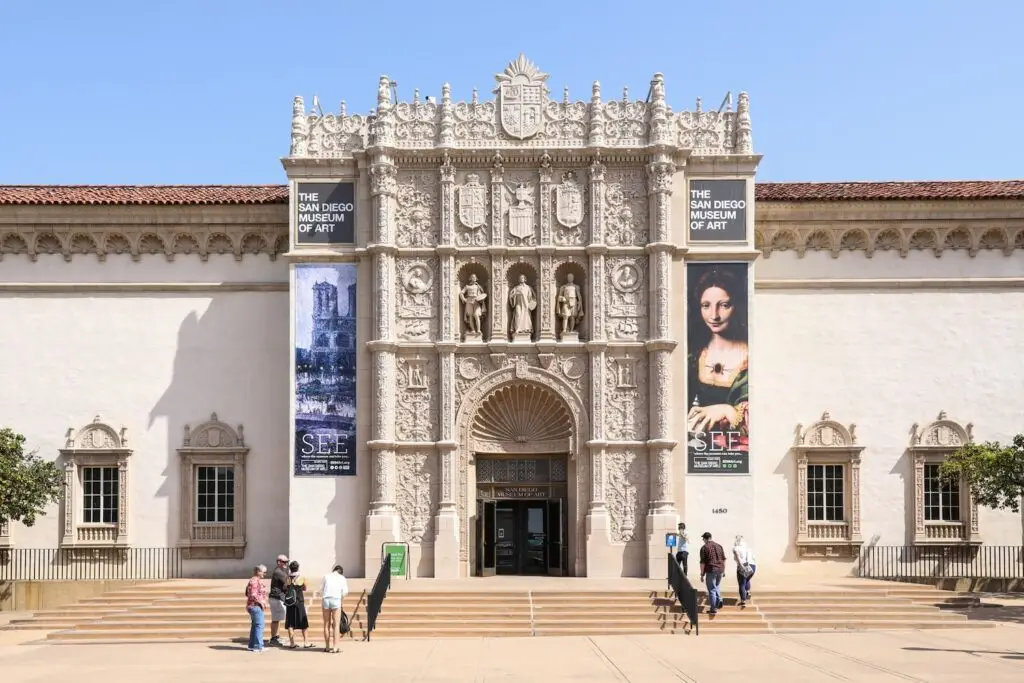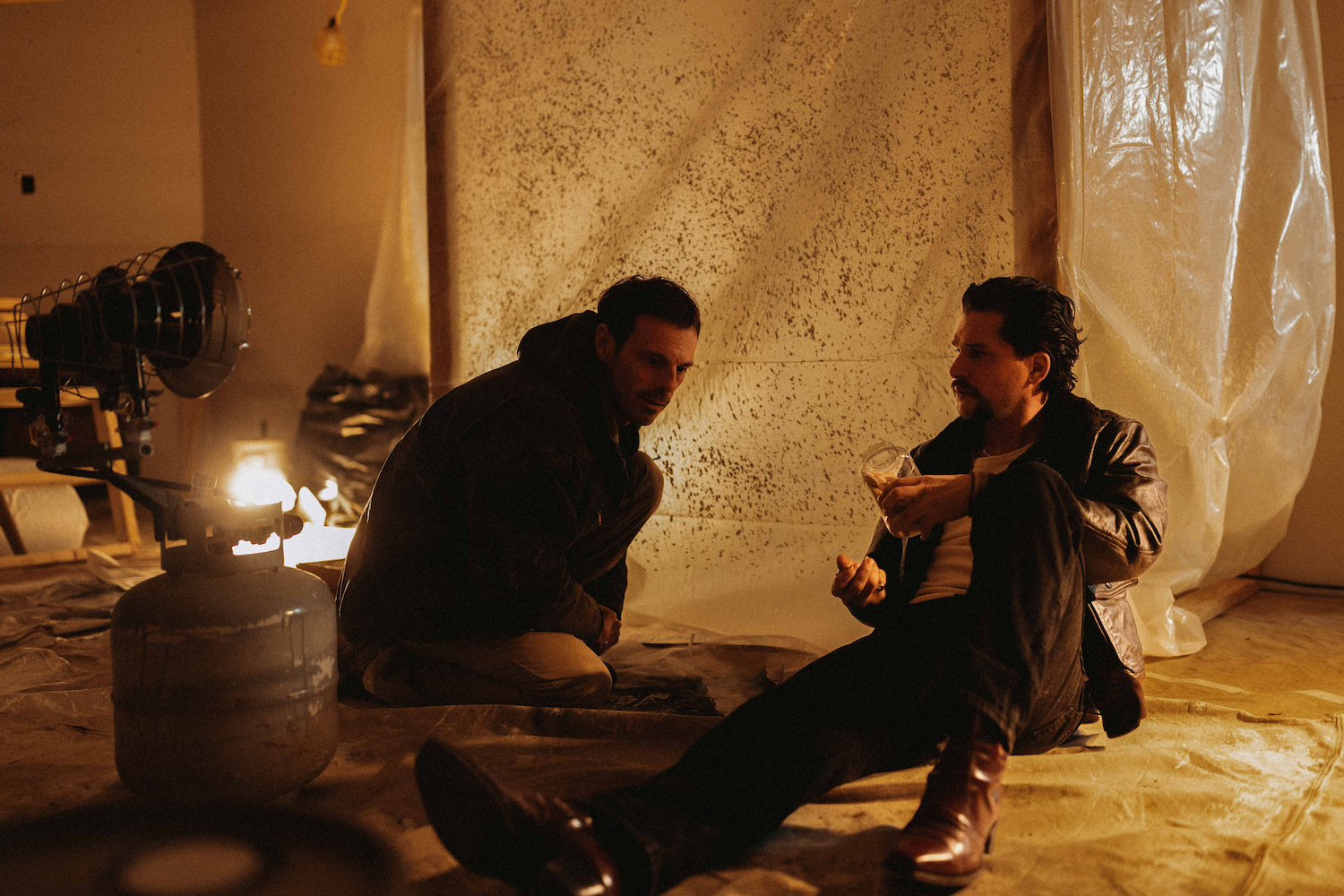“Jon Snow… as a gunrunner… in rural Montana.” It makes for a pretty good elevator pitch—and it’s a simple synopsis for Blood for Dust, a neo-western crime thriller starring Scoot McNairy, Kit Harington, and Josh Lucas. Directed by Rod Blackhurst, the movie won Best Feature at the 2023 San Diego International Film Fest back in October.
McNairy plays Cliff, a traveling salesman struggling to provide for his family, who is lured into the world of arms and drugs trafficking by an old colleague (Harington). The indie shoot-’em-up drags the viewer into a brutal underworld, forcing them to confront the limits of the so-called American dream. We sat down with producer Noah Lang to chat about the inspiration behind the film ahead of its limited release and digital release on April 19.
First off, congratulations on the win. What made you want to tell this story?
I produced a movie in my 20s with Rod Blackhurst called Here Alone. We premiered at Tribeca and won the audience award, and along the way became best friends and eventually business partners in our production company. Straight away, we started developing this rough story based on the idea of a traveling salesman who’s drowning under the weight of trying to provide. We had this [loose] outline and we kept tinkering with it and tweaking it. It took us six years to get to make the film.
Finally, it all fell into place very fast. Josh Lucas, Kit Harington, and Scoot McNairy all wanted to do it, and it all happened within the span of five months. What drew me to it is that [in the industry] right now [there’s not] a lot of emphasis being placed [on] class warfare—the haves and the have-nots. So this is a way to talk about things that are important to all of us—the writer, myself, the director—and a means to comment on something we care about under the guise of a thriller.
What was it like working with such an impressive cast?
Our cast was so fantastic. Scoot McNairy couldn’t be a cooler guy, so down-to-earth. He’s just as happy talking to someone as famous as Kit Harington as he is with a production assistant or an intern.
We owe a ton of fealty to Kit Harington—he and Josh helped unlock so much of the money, and he reciprocated it by being a lovely guy and a family man, wildly talented, and super sweet. They all worked so hard.
Josh is just a great dude. He was with us for a week, and he’s so smart. He brought a lot of gravitas to the character. The three of them made a lot of the process easy because of how talented they are.
That certainly makes your job easier. I didn’t realize it was done in such a short span of time—what were some of the challenges in producing this film?
It’s a period movie. It’s [set in] the early ’90s, which is weird to think about as “period,” but that’s a long time ago now. Trying to avoid shooting stuff that is very contemporary is hard, especially without a very large VFX budget. So we went to this part of Montana called Billings, which is very much stuck in the ’90s. Identifying that place was key.
Also, there’s action, there’s gunfights. We were proud we didn’t use any live ammunition or blanks—we just philosophically don’t agree with it. Even so, that stuff is hard. It’s choreography, it’s camera placement, it’s all these things that come together. And just the logistics of shooting in winter—it’s so cold there. Everybody was wearing 10 layers.
But no one complained; everyone had a good time. It just shows that if you build a good set culture and you care about your people, they’ll show up for you. I think the film speaks to that. It’s been so well-received. I’m hopeful that wide audiences are really going to love it too.

What do you hope the audience takes away from the film?
To me, it’s a movie that speaks to a wide cross section of people. I think anyone can get behind the idea that there are two sets of laws, two sets of rules: The rich get richer, while the poor are held to different standards. That infuriates people. That’s in this, but it’s between the lines.
I think [viewers will be able] to relate to our lead—he’s a person we can see parts of ourselves in. He’s imperfect. He tries really hard, but he’s made enormous mistakes, but he does believe he can be a better man. I hope they take away a certain sense of entertainment and tension. We tried to make a movie that’s as much a drama as it is a thriller.
How do you feel about the final product?
I couldn’t be happier. Spielberg says, “No movie’s finished, just abandoned.” Maybe I’ll watch it in three or four years and think, “Man, it would have been nice if we could have done x or y.” But we got to make the movie we wanted to make.
I love the pace. I love how it feels. I’ve watched it in theaters so many times now, but I don’t get tired of it. I’m hopeful other people feel the same way. I’ve been really encouraged with how much critics have liked it, but it’s really about what audiences take away.
The director, Rod Blackhurst, said that the setting itself is a character in this movie. If San Diego were a character in one of your movies, what would that look like?
I mean, San Diego is so beautiful and has so much diversity to how it looks, so it does depend on where you would set the film. I do think there’s something to be said for trying to set something more in the genre world, horror or sci-fi, and embracing some of the more suburban places in San Diego and leaning in a little bit to this new wave of American culture, a lot of housing developments and things like that. What it says about gentrification or the American dream—is there a way to fold that into the artifice of a horror movie or sci-fi movie? I’d love to see something like that. And I’d love to make something in San Diego, because I could just stay with my in-laws and save that money out of the budget.
PARTNER CONTENT
Always thinking like a producer. I didn’t realize you had family down here—what do you like to do when you’re in town?
We go out to eat a lot. What’s the place with the old, converted barracks and all the nice restaurants? Liberty Station. We love it there. We have two young kids, so it’s things like the Science Museum at Balboa Park, and the zoo, and going to the beach when it’s warm enough. Even just walking around La Jolla is so great. Standard stuff, frankly.
Lastly, I have to ask—is your life anything like Entourage?
Absolutely not! I wish we had that kind of financial stability. It’s such a peculiar time to be making stuff and trying to be a producer or filmmaker at all. It’s so difficult out there. But what is the same is being able to rely on one another and know that we care about each other and want each other to succeed. And the want and love for making movies and being on set. If I didn’t like that then I wouldn’t want to do it, but I love that.



















